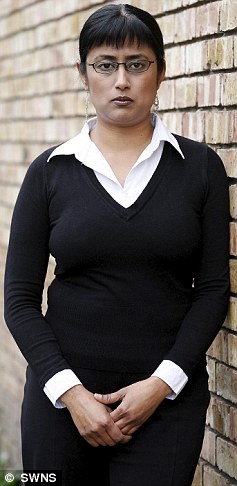|
Britain’s totalitarian anti-discrimination regime turns on one of its own
The Mail’s headline is chilling:
The ‘coconut’ hate crime investigation that shows NOBODY can escape Britain’s Thought PoliceWe learn in the article that Shirley Brown, a black long time activist and councillor in Bristol, England, in a heated moment during a debate two years ago, called another councillor, an immigrant from India, a “coconut” for not supporting a project to atone for Bristol’s historic role in the slave trade. Brown very quickly apologized for the remark, but that didn’t end the affair. The police, seeking to demonstrate that they enforced the hate-speech laws equally against everyone, pursued a 15 month investigation, culminating in a three day trial of Brown for incitement of racial hatred:
Last July, after being found guilty, she was given a 12-month conditional discharge and ordered to pay £620 costs. ‘I was devastated by the verdict but I wasn’t surprised,’ she says. ‘I had the feeling the judge wanted to make an example of me.Brown continues:
“It was a mistake. Everybody makes mistakes though, and I feel the price I’ve paid for mine has been too great. I’ve been publicly humiliated and my reputation has been ruined. I’m devastated that after all my hard work for the community I’ve got a criminal record for racism.In the usual manner of conservatives and many liberals in modern society, Brown blames “political correctness” for taking the anti-hate law too far and subjecting her to such an ordeal, but she doesn’t question the anti-hate law itself. She doesn’t suggest on what principled basis a law criminalizing the “incitement of racial hatred and discrimination” would only punish the people she wants to be punished and not punish her. She doesn’t say why “using threatening, abusive or insulting words, with intent to cause harassment, alarm or distress ” [emphasis added], the act of which she was found guilty, ought to be a criminal offense when white men do it, but not when she does it.
Mark Jaws writes:
So, what we have here is a black “British” woman calling an Indian living in Britain a “coconut” for being a South Asian version of an Uncle Tom, brown on the outside but white on the inside. Good, I am glad she is being fried. This evening I will drink a glass of Schadenfreude to go along with my “Weiner Schnitzel.”LA replies:
Exactly. I’m glad you raised this point. Shirley Brown found herself under the gun because the woman she insulted, Jay Jethwa, is an Indian (or an Asian as they say in Britain). Even though Brown quickly apologized for the remark, Jethwa evidently did not accept the apology, but complained to the police, and as she was a nonwhite person complaining about a “racist” remark against herself, the police had to take it seriously.James P. writes:
Just look at the picture of Shirley Brown’s “victim” Jay Jethwa—a grim enforcer of multi-culti orthodoxy if ever there was one! [LA replies: Indeed, so grim and orthodox that she wouldn’t accept Brown’s evidently sincere apology, but pressed criminal charges against her for the single word “coconut.”] Posted by Lawrence Auster at June 13, 2011 09:02 AM | Send Email entry |
